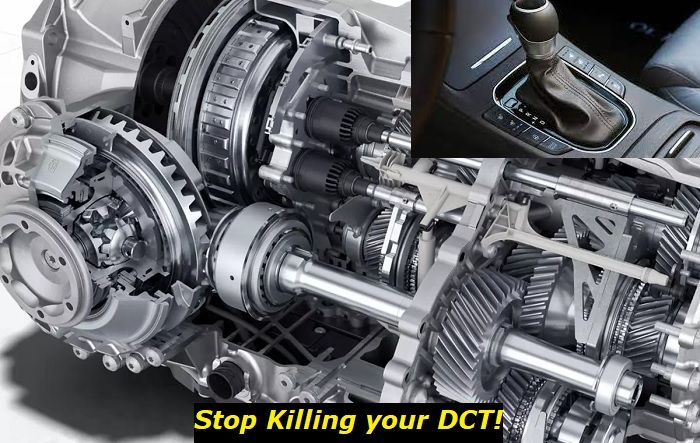If you're the owner of a BMW 335i and have been noticing some strange behavior with its transmission lately, then you may be familiar with the bear humming noise that's soon followed by your car foregoing normal control - yup, it looks like your transmission is malfunctioning.
Transmission malfunction message highlights
- Common reasons:transmission fluid low, transmission sensors glitchy, gearbox is out of order
- How to fix:add fluid if needed, change transmission fluid, replace the transmission
- Possible consequences:ignoring will lead to fatal transmission failure
- Priority level:High
- Can you drive?Not recommended
- DIY repair:Impossible
- Repair price range:$200-$5,000

What are the symptoms of a BMW 335i transmission malfunctioning?
If you're having difficulty with your BMW 335i transmission, it's important to identify what the symptoms are so that you can take proper steps to get it fixed. Common transmission issues include the check engine light appearing, a decrease in engine power, difficulty shifting gears, and strange noises, such as whirring, buzzing, or grinding, when shifting gears.
You may also feel vibrations when driving or shuddering when accelerating, both of which can indicate a problem with the transmission.
1) Check engine light appearing
Having a check engine light can be one of the most frustrating problems to deal with in any car, especially for those driving a BMW 335i. A malfunctioning transmission is one of the potential culprits if the light does appear, and it's important to take care of it right away to avoid more expensive repair costs down the road.
Even though dealing with this issue can lead to concerns about what it might cost you in the long run, being proactive and taking your car to a trustworthy auto repair shop should give you peace of mind - they'll help you to diagnose and solve your transmission issues.
2) A decrease in engine power
Have you ever found yourself driving your BMW 335i only to notice that the engine suddenly has less power than usual? This can be a telltale sign of a transmission malfunction. When a transmission isn't functioning properly in this type of vehicle, power is drawn away from the engine and diverted elsewhere, resulting in decreased overall power.
Without the proper means of transferring torque between the engine and wheels, the 335i won't have the same amount of acceleration or power as it should when you press down on the pedal. To make sure that your car is running at its fullest potential, it's important to pay special attention to any unexpected decrease in engine power and resolve this problem right away.
3) Difficulty shifting gears
Having difficulty shifting gears can be a major headache, especially in a BMW 335i. While this problem can have a variety of causes, if you experience trouble transitioning quickly and your transmission control system indicator seems out of whack, it's possible that there is an underlying faulty transmission in your vehicle.
If that's the case, it's best to take it to an experienced technician right away so that they can diagnose and fix the issue before any further damage occurs. Don't let transmission problems affect the great driving performance you expect from your 335i!
4) Strange noises
Hearing strange noises when driving - especially in your beloved BMW 335i - can be a sign of trouble. It's likely that something is going wrong with the transmission. Most cars produce engine noises and sound normal when accelerating and decelerating, but unfamiliar errs and grinds can signal potential danger.
If there are any weird rumbles or thumps coming from beneath the car, have it looked at right away to determine if further repairs are necessary. In some cases, an oil change may fix the problem, whereas more serious issues could require transmission repair and replacement over time.
Odd noises don't usually mean imminent destruction, but scheduling a professional inspection is essential.
5) Car shuddering or vibrating
If you feel like your BMW 335i is shuddering or vibrating, it could be a transmission malfunction. This can occur if the internal transmission parts are worn out, which can cause shakes and vibrations during the drive. It could also be from low transmission fluid levels, which can lead to a burning smell accompanying the vibrations.
Either way, you should get it checked out by a professional to determine the cause of the issue before it gets worse. Ignoring this symptom can lead to severe and costly damage in the future.
How to fix BMW 335i transmission problems?
Trying to fix transmission problems on a BMW 335i can seem intimidating, but there are a few DIY tricks you can use to troubleshoot the most common issues without having to pay for an expensive technician.
- Checking the fluid levels
First and foremost, always check your transmission fluid levels and top off if necessary. Keeping your BMW 335i in proper working order can be an investment, but taking care of the basics first can mean a world of difference. A critical part of making sure that your ride is running smoothly is ensuring that transmission fluid levels are always up to par.
Checking fluid levels, and topping it off if necessary, can be the first step to stopping any potential issues with transmission malfunctioning. It's an easy fix, so take advantage of it before major repair costs come into play!
- Notice any changes in the behavior of the tranny
An easy way to help identify other specific problems is to take note of whether shifting gears while driving seems particularly slow or hesitant. If you're the proud owner of a BMW 335i, you want to make sure that its performance is top-notch at all times.
Pay attention when you're shifting gears when driving - it should be smooth and seamless. If the gear change feels particularly slow or hesitant, take note of it. This can be an indication that something isn't right and that repairs may need to be made in order to fix the problem.
If that's the case, you may want to look into getting the car scanned so that you would know what error codes it's producing - this can help to narrow down the source of your transmission woes. Regularly check your transmission as part of your car maintenance routine in order to ensure proper performance.
- Repair your transmission
Finally, you may also need to consider replacing certain worn-out components, such as pressure sensors or bad O-rings, if the issue persists. In order to get your BMW 335i transmission working normally again, replacing these worn-out components may just be the solution you need.
Moving gears within a manual or automatic transmission is a complex process that requires dexterous precision and accuracy. Therefore, sometimes this mechanism can't be restored with a simple repair or maintenance check. That's why proactively replacing the components when they're showing signs of wear and tear is the best way to ensure the smooth functioning of your vehicle in the long run.
Luckily, there are plenty of reliable parts available on the market today for use in DIY repairs and replacements, so you don't even need an expert mechanic to accomplish this task.
Nevertheless, in some cases, the problem can be too complex and require deep professional expertise. That's why it is always a good idea to have your car checked by a professional mechanic.
With these troubleshooting tips in mind, you should now have a better idea of how to repair your BMW 335i's transmission problems quickly and cost-effectively.
Some tips on how to prevent your BMW 335i from having transmission problems in the first place
If you want to make sure that your BMW 335i has a long and trouble-free life, there are a few things you can do to ward off transmission problems.
First, regular maintenance is key - make sure you get an oil change every 3,000-5,000 miles and have the transmission fluid changed once a year or after putting on 18,000 miles.
Secondly, monitor how you drive - avoid quick starts/stops to prolong the life of your clutch and don't let the car idle for too long because it causes stress on the transmission.
Finally, simple check-ups from time to time are highly recommended - look for any signs of dirt or debris in the engine compartment and, if possible, take it in for a test run when you identify any issues. Do these things and your BMW will keep running smoothly!
The Bottom Line
So, there you have it: all the essential details on what can go wrong with your BMW 335i transmission, how to spot the signs, and how to fix the problem if you find yourself in this unfortunate situation.
Given that transmissions are usually one of the most expensive car repairs, hopefully, you can take some solace in knowing that there are ways to prevent these issues from arising in the first place. And if they do arise? Well, at least now you know what steps to take next.
Have you ever had some problems with your BMW 355i transmission? If so - how did you fix them? Let us know in the comments below!
About the authors
The CarAraC research team is composed of seasoned auto mechanics and automotive industry professionals, including individuals with advanced degrees and certifications in their field. Our team members boast prestigious credentials, reflecting their extensive knowledge and skills. These qualifications include: IMI: Institute of the Motor Industry, ASE-Certified Master Automobile Technicians; Coventry University, Graduate of MA in Automotive Journalism; Politecnico di Torino, Italy, MS Automotive Engineering; Ss. Cyril and Methodius University in Skopje, Mechanical University in Skopje; TOC Automotive College; DHA Suffa University, Department of Mechanical Engineering






Add comment